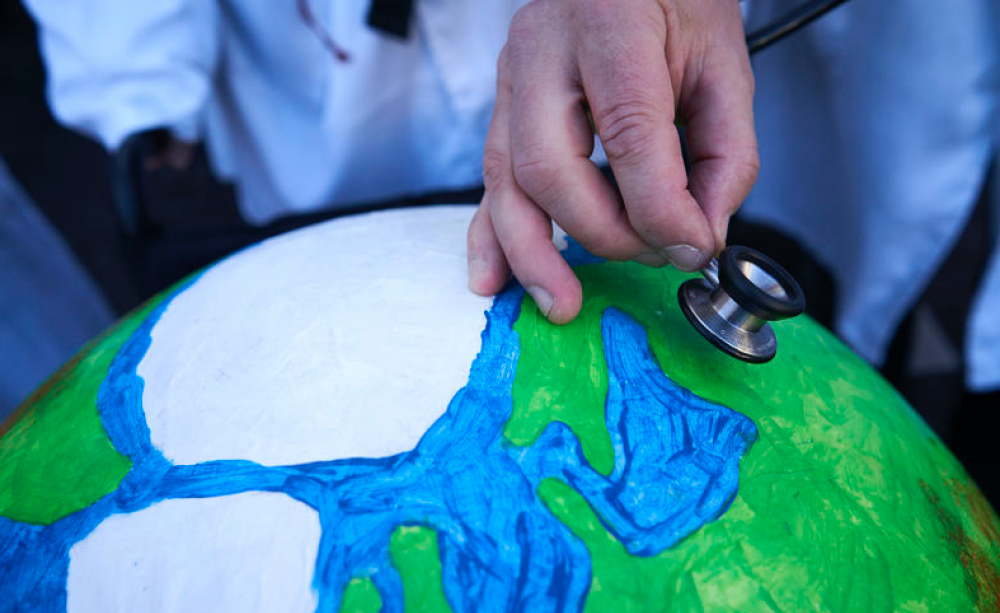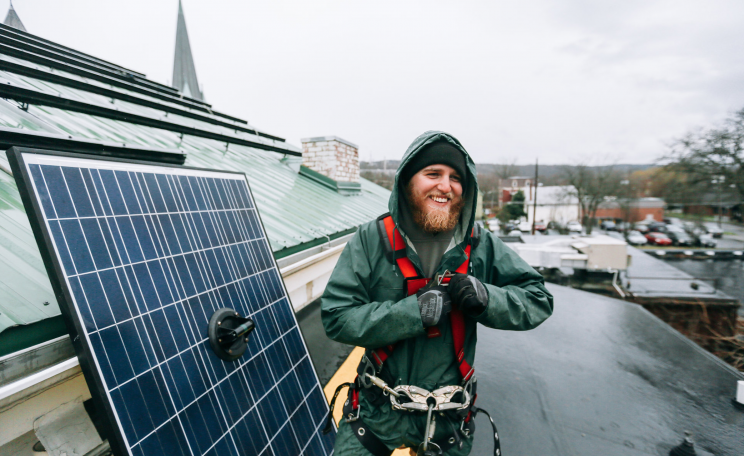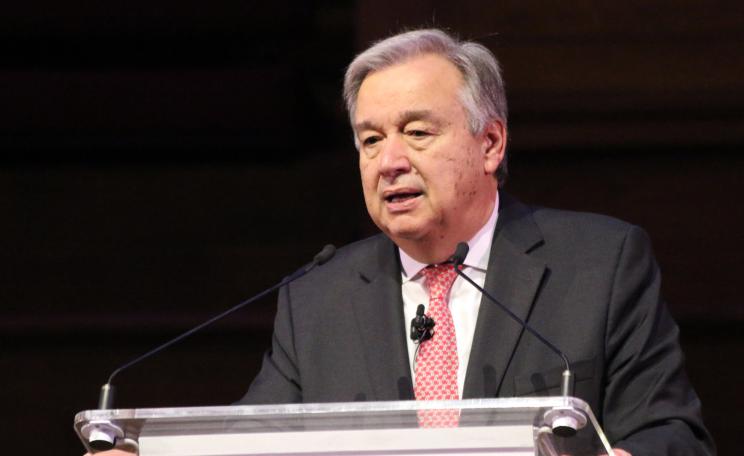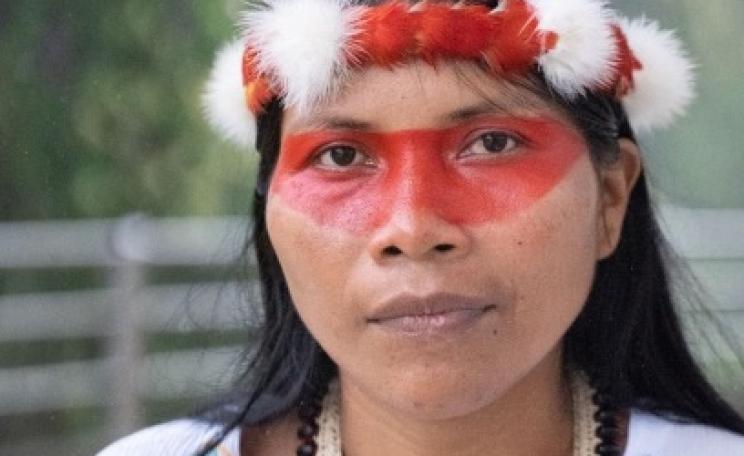A new discipline, planetary health, is emerging that focuses on the increasingly visible connections between the wellbeing of humans, other living things and entire ecosystems.
People across the planet are asking whether the novel coronavirus pandemic represents nature taking revenge on a rampant humanity.
This kind of thinking is not a new. In 2006 James Lovelock published his book The Revenge of Gaia. His central thesis is that Gaia, the interactive, living planet, could be punishing a fossil-fuel addicted, climate changing humanity by making the earth uninhabitable for people. Lovelock implied that we may soon force Gaia into red-hot mode, and that she could ultimately shake us off. His book helped to amplify concern about a looming global climate emergency which has been featured in the news ever since.
But is this thesis relevant in the current context? Well, right now, we are faced with a different set of concerns: Unprecedented human numbers, coupled with unprecedented demands for resources, may have unleashed an ecological tsunami of our own making.
Planetary health
In early March ex-Guardian environment editor John Vidal published an article, Is our destruction of nature responsible for Covid-19, in which he says: “A number of researchers today think that it is actually humanity’s destruction of biodiversity that creates the conditions for new viruses and diseases … to arise – with profound health and economic impacts in rich and poor countries alike.
"In fact, a new discipline, planetary health, is emerging that focuses on the increasingly visible connections between the wellbeing of humans, other living things and entire ecosystems.”
Prof. Kate Jones at University College London, concurs. She calls emerging infectious diseases resulting from animal-human interactions an “increasing and very significant threat to global health, security and economies”.
This view is also the focus of the work of an organisation called the Global Eco-Health Alliance with dozens of international academic partners, which documents the fragile linkages between human health and ecosystem health.
Impacts
So, could nature actually be taking revenge on us by unleashing new diseases? Well, in the last few decades we have certainly been faced with a succession of virulent viruses that have jumped from other living organisms into the human realm – Sars, Bird Flu, Ebola, Mers – and we have had narrow escapes each time, by activating hi-tech medical research and particularly by advances in vaccine technology.
But as commercial activity penetrates ever deeper into the world’s wildernesses, we will likely encounter more and more unexpected biological forces we may not be able to control.
As the annual WWF Living Planet Index clearly indicates, we are in ‘overshoot mode’ and under the present trajectory this can only accelerate. We are increasingly living of nature’s capital, not its annual income. As E.F. Schumacher suggested 45 years ago, “in our victory in our battle against nature we will find ourselves on the losing side.”
A new discipline, planetary health, is emerging that focuses on the increasingly visible connections between the wellbeing of humans, other living things and entire ecosystems.
These views are shared by an ever-growing number of scientists. But where does this take us as regards our behaviour patterns? The warning bells have been ringing for decades, as news about deforestation in the tropics, the bleaching of coral reefs and the impacts of pollution became public knowledge. The term ‘Planetary Emergency’, initiated by the Club of Rome, has been gaining currency in recent months.
There is little doubt that the Covid-19 pandemic will be a trigger to force our civilisation to change some of its fundamental attitudes. And as our health systems are overwhelmed by the new virus, we are forced to ask whether our current lifestyles can continue unchanged.
The Global North was barely prepared for the Covid-19 crisis, but at least we have reasonably well-developed, hi-tech health systems. Most developing countries don’t have that luxury, and the impacts of the virus there is on track to be truly horrific.
Even before the current crisis, vast impacts on human health have been occurring all along. According to a recent Greenpeace study, Toxic air, the price of fossil fuels, the daily global health costs of waste gases emissions from factories, power stations and transport add up to a staggering US$ 8 billion worldwide.
Economics
And then there is also the fragility of our globally interconnected trading systems. A viral contagion is also becoming an economic contagion, profoundly affecting key commercial sectors such as finance, fossil fuels, aviation, cruise shipping, tourism and hospitality. The car industry may find it hard to recover. And farmers across the world are also being affected in many different ways.
The precariousness of our existing economic and financial systems has been evident for a long time. Can a civilisation fixated on urban-economic growth continue as before?
This crisis has profound implications for how we conduct ourselves on our home planet. Neo-liberal globalisation of finance and industrial production, depending on ever longer and potentially fragile just-in-time supply chains, is now fundamentally challenged.
Can we get serious about creating an economic system that produces less, and that distributes resources more equally? More localised, regenerative production systems and lifestyles are gaining in attractiveness because they would seem to be much more robust. Home working may become an attractive proposition for a growing number of people.
Many of us may come to realise that consuming less, driving less, not going on cruise holidays or flying abroad on holiday twice a year, may not be such a bad thing. Meanwhile face-to-face global communication and transfer of ideas are becoming common practice.
So right now, most of us are at home, self-isolating, doing DIY, using Facebook, watching Netflix and maybe doing a bit of spring gardening. Some of us live in mortal fear; others are engaged in a great, soul-searching inward journey.
Community
Despite the self-isolation in our four walls, community life is experiencing a vigorous resurgence. People everywhere are helping each other out with shopping, preparing meals, remotely keeping each other company, and so much more. We may well become used to living like this.
So, is the Covid-19 virus reaping revenge on humanity? Well, we are faced with a very clever new disease vector that is good at keeping us guessing on how to respond. It may be teaching us that there is much to be learned from nature’s boundless, unpredictable vitality.
Nature is all about give and take, about complex interactions between a vast variety of living species. It is severely damaged by monocultures – in factory farming and also in city living. The urban world we are currently engaged in making is a potentially very fragile monoculture of rather self-centred human beings.
We have been very good at taking ever more from nature but not giving anything back, other than in pollutants. Yet unlike our modern economies and cities, nature is a dynamic, stable, regenerative system where all waste become of source of new growth from season to season. And given half a chance, when left to its own devices, nature will always rewild landscapes previously occupied by us humans.
So, what are the important lessons of the current crisis? No one can claim that viruses such as Covid-19 are vengeful entities, consciously determined to curtail human numbers and impacts, or that the unprecedented death rates are a form of natural 'rebalancing'.
Creative
But we certainly need to understand that there are stark consequences for ever-deeper incursions into wilderness for the sake of commercial expansion and the extraction of resources.
This present crisis would seem to lead to an inevitable conclusion: in the aftermath of Covid-19, the certainties of an ideology of no-holds-barred economic growth on a finite planet could well be ousted permanently.
It is clear that we need to act to vigorously to address the root causes of the ongoing impoverishment of the planet’s ecosystems, and the vast inequalities between different sectors of humanity, unless we wish to imperil our own lives and our children’s futures.
Existing initiatives, such as the much touted ‘Green New Deal’, are a useful starting point, but the global recession we are facing will require us to take even bolder steps. We need to think big and aim for vigorous global initiatives that put a clear understanding of nature’s regenerative systems centre stage.
Pooling the creative energies within all of us should enable us to trigger a truly ‘green recovery’ from this current crisis.
This Author
Professor Herbert Girardet is a prolific author, environment consultant and former filmmaker. He is a trustee of the Resurgence Trust (which owns and publishes The Ecologist), co-founder of the World Future Council and member of the Club of Rome.
Image: Anne Barth, Greenpeace.







